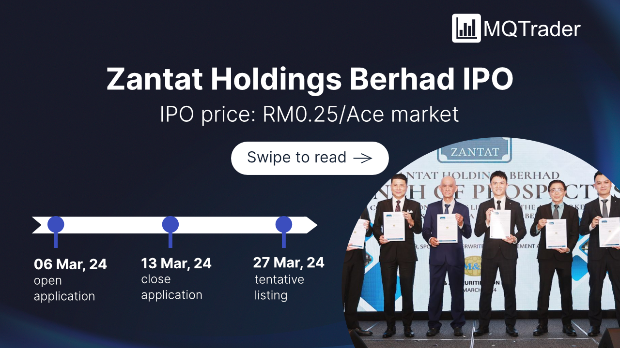Fulfilling urgent need for talent, workforce development in SEA’s semiconductor industry
savemalaysia
Publish date: Tue, 16 Jul 2024, 09:15 PM
THE semiconductor industry is experiencing unprecedented growth with demand for advanced technologies fuelling a rapid expansion in markets globally.
This surge presents a significant opportunity but also highlights a critical need: the elevation of talent skills to keep pace with industry advancements.
As companies strive to innovate and maintain a competitive edge, the demand for skilled professionals capable of navigating the complexities of semiconductor technology has never been higher.
Addressing this talent gap is essential to sustaining the industry’s momentum and ensuring long-term success. FocusM speaks to Ray Chua who is the SEMI Southeast Asia’s (SEA) Workforce Development Council chairman on the urgent need for workforce development and the necessary proactive measures to nurture talent within the semiconductor sector.
Q: Could you provide an overview of the initiatives organised by the SEMI Southeast Asia’s Workforce Development Council to cultivate talent in the electronics industry?
The Workforce Development Council adopts a four-stage approach to grow and develop the talent pool within the industry. Much like the life cycle of a tree, it starts with planting the seeds, watering and feeding it and allowing the tree to grow before gathering seeds for new trees to grow.
The concept of the first stage is to attract more talent to join the industry via school outreach. We hope to plant the seeds early in their studies to pursue an education in STEM (science, technology, engineering and mathematics) and consider a career in our industry.
The second stage is to keep up with the times and constantly grow our talent by providing relevant upskilling and reskilling opportunities. The skills we have must meet the current and the future needs of the industry. As the needs will change and evolve over time, it is imperative that we stay ahead of the curve.
Thirdly, we want to maximise the potential of our talents. We hope to focus on leadership development and groom the future leaders of our industry. Lastly, we ask for industry veterans to partner us in the first three stages. That is why I describe it like a life cycle. We constantly renew ourselves and keep up with the times.
Some recent examples of these initiatives were implemented at the SEMICON Southeast Asia 2024 held in Kuala Lumpur. One is the TechIDOL to promote the role of an engineer in the semiconductor industry to students and young engineers.
Another is the Semiconductor Regional HR Forum where we brought human resource professionals from the industry to discuss trending HR topics like AI (artificial intelligence) or operating in Southeast Asia.
Q: What do you see as the most pressing challenges in building and growing the talent ecosystem for the electronics industry in the region?
There is constant competition for talent while at the same time nurturing talent to be ready for our industry takes time.
On one hand, as the region develops and grow in several other industries, students who are pursuing their education may decide to pursue areas outside of STEM.
On the other hand, the demand for the talent in our industry may rise exponentially in the next few years alongside the growth plan to reach a trillion-dollar industry globally by 2030.
We are therefore staring at a gap between our demand and supply of talents for our industry. To meet the growth plan, we have to start growing the talent pool now. All four stages of the initiatives outlined by the council are important to support our talent growth.
Q: What are some of the key talent trends that you observe in Southeast Asia’s electronics industry in recent times?
As more and more companies have invested heavily in Southeast Asia and turning the region into a manufacturing hub, we observe a few trends in manufacturing and supply chain management that will in turn impact the talent required.
Firstly, there is fast-paced adoption of advanced manufacturing and increased demand in advanced manufacturing talent. This is not only about having robots at the factory floor but also leveraging AI/machine learning to increase productivity.
Secondly, the need for ESG and sustainability also demands specialised skill sets as companies look at green materials management, energy-efficient manufacturing processes and end-of-life product recycling.
Lastly, with supply chain resilience a heated topic in recent years, talents with deep knowledge in supply chain management will be crucial for companies to identify, manage and navigate disruptions to operations.
Q: In your experience, what role does industry collaboration play in advancing workforce development initiatives, especially in a rapidly evolving sector like electronics?
It takes more than one single company to advance broad-based workforce development initiatives.
It is only through industry collaboration that we can enable timely change and advancement in areas of education, talent sourcing and industry re-skilling initiatives, to name a few at the national or regional level.
I am confident we have the leadership, talent and willingness within our industry to make such collaboration work.
Q: Finally, what advice would you offer to individuals aspiring to build a career in the electronics industry, considering the current landscape and future prospects?
I have three points for individuals who are aspiring to build a career in the electronics industry. First is to have the learning agility to constantly learn and re-learn. Some of us will be taking up roles that have yet to be created.
There will be new knowledge created over time. The ability to learn and learn fast will be critical for success in the rapidly changing industry like ours.
Second is to hone and learn the ability to be able to zoom in and out of a situation. Learn to be able to see and analyse issues from different perspectives to make better decisions.
Lastly is to learn to be a good leader and a team player. As our work gets more complex, it is more important for us to work in a team to solve challenges. To be comfortable and excel in the role of a leader is as important as being comfortable to support as a team member. - July 16, 2024
https://focusmalaysia.my/fulfilling-urgent-need-for-talent-workforce-development-in-seas-semiconductor-industry/
More articles on save malaysia!
Created by savemalaysia | Jul 16, 2024
Created by savemalaysia | Jul 16, 2024
Created by savemalaysia | Jul 16, 2024
Created by savemalaysia | Jul 16, 2024
Created by savemalaysia | Jul 16, 2024
Created by savemalaysia | Jul 16, 2024


















